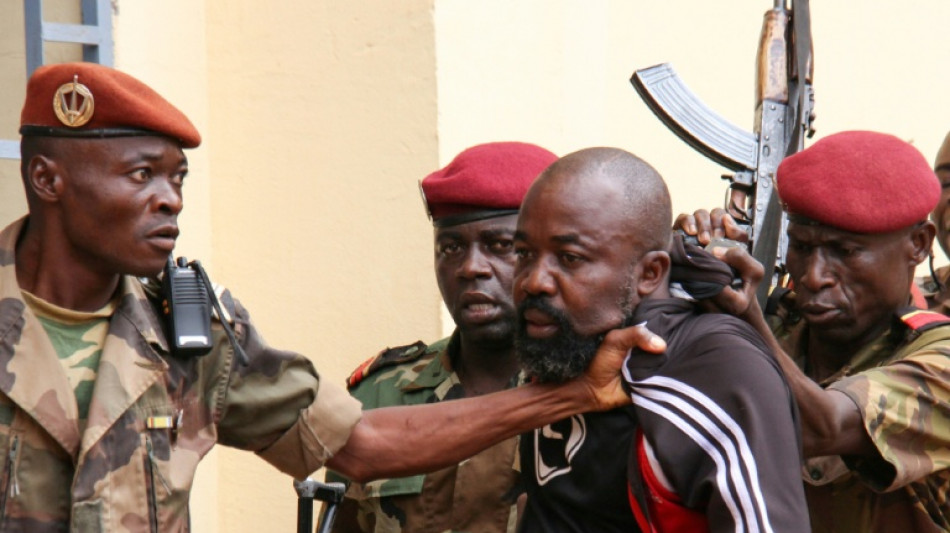
BCE
-0.1200

The International Criminal Court Thursday convicted a former top Central African Republic football official and a militiaman nicknamed Rambo for multiple war crimes committed during the country's civil war in 2013 and 2014.
Ex-sports minister Patrice-Edouard Ngaissona was a senior leader of mainly Christian militias as the country slid into civil war, while Alfred Yekatom, a former MP, commanded them on the ground.
The ICC sentenced Yekatom to 15 years behind bars for 20 war crimes and crimes against humanity including murder and torture.
Ngaissona received a sentence of 12 years for 28 counts of war crimes and crimes against humanity.
Their militia, known as anti-Balaka or "anti-machete", were formed as vigilante self-defence groups after mainly Muslim rebels called the Seleka stormed the capital Bangui and removed then-president Francois Bozize, a Christian.
Presiding judge Bertram Schmitt read harrowing details of the violence committed by the militia against suspected Seleka Muslims.
Yekatom's men tortured one suspect by cutting off his fingers, toes, and one ear. This man's body was never found. Others were killed and then mutilated.
Appearing in court dressed in a light brown suit and waistcoat, white shirt, and dark tie, Yekatom listened impassively as the judge read out the verdict.
Dressed in a bright blue jacket, Ngaissona nodded to the judge as his sentence was delivered.
The court found Yekatom not guilty of conscripting child soldiers and acquitted Ngaissona of the charge of rape.
Both men had pleaded not guilty to all charges.
Yekatom was extradited to The Hague in late 2018, after being arrested in the CAR for firing his gun in parliament.
Ngaissona was arrested in France in December 2018 and extradited to The Hague. At the time he was head of the CAR football association and a board member of the Confederation of African Football (CAF).
The Central African Republic is among the poorest nations in the world and has endured a succession of civil wars and authoritarian governments since independence in 1960.
Violence has subsided in recent years but fighting occasionally erupts in remote regions between rebels and the national army, which is backed by Russian mercenaries and Rwandan troops.
Set up in 2002, the ICC is the world's only independent tribunal capable of prosecuting those accused of the world's worst crimes.
P.Svatek--TPP